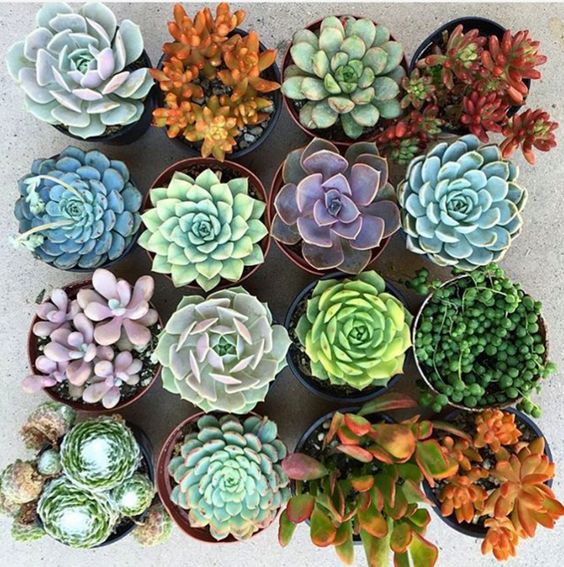You know how accommodating indoor plants can be for your health. Yet, while you have potted myriad plants in and around your home, you may in any case be in two personalities about keeping a couple of plants in your room, most likely in light of the fact that you are stressed that room plants can be hurtful during the evening as they emanate carbon dioxide and retain oxygen. In any case, explore recommends that the carbon dioxide discharged by plants is too less to possibly be destructive to people and the oxygen they ingest is pretty minuscule.1 On the opposite, plants enable you to rest better, suppress airborne germs, discharge water vapor, and remove indoor contaminations and chemicals from the air.
So here are the 8 plants that help you sleep better at night.
[better-ads type=”banner” banner=”118″ campaign=”none” count=”2″ columns=”1″ orderby=”rand” order=”ASC” align=”center” show-caption=”1″][/better-ads]
- Lavender
The advantages of lavender fundamental oil in boosting sleep quality are broadly recognized. As indicated by the National Sleep Foundation, lavender enables your body to unwind by bringing down your pulse and heart rate.
Lavender fragrance based treatment has likewise been appeared to decrease levels of cortisol, the pressure hormone, in the body, supporting in unwinding and better blood circulation. The possess a scent reminiscent of lavender can hush even particular children to rest. Furthermore, that implies sweet dreams for the unseasoned parents also! It can also reduce tension and enhance your inclination.
- How to take care of your lavender
- Keep your lavender plant near a south-facing window if possible.
- Water the plant lightly whenever the top of the soil inside the pot feels dry. Make sure to not over-water because lavender roots are particularly prone to root rot due to excess water.
[better-ads]
READ MORE
- Jasmine
jasmine plants make for an excellent addition to any home/bedroom. To understand the value of keeping a jasmine plant in your bedroom, simply take a glance at the dozens of benefits that jasmine essential oil proffers.
It comes highly recommended for help with depression, stress, fatigue, and anxiety. In fact, studies have shown that inhaling jasmine oil transmits signals to the limbic system – a region of the brain that regulates emotions as well as impacts the nervous system
Jasmine can lift your mood, quiet you down, lighten pressure, and tenderly break you to sleep
- How to take care of your jasmine
- A jasmine plant should ideally be kept in a room with cooler temperatures, near a south-facing window.
- Give it a plant support or trellis to help it grow.
- Give no more than 3/4 hours of sunlight for your jasmine.
[better-ads type=”banner” banner=”118″ campaign=”none” count=”2″ columns=”1″ orderby=”rand” order=”ASC” align=”center” show-caption=”1″][/better-ads]
- Rosemary
A usually utilized herb for cooking purposes, rosemary can likewise enable you to show signs of improvement sleep. Rosemary has been viewed as a memory booster for a considerable length of time in ancient medical. Specialists today prescribe rosemary basic oil for supporting the sensory system and circulatory health, enhancing focus, and diminishing pressure.
Rosemary can enhance your concentration, help your memory, and alleviate pressure.
- How to take care of your rosemary
- rosemary can be grown as an annual plant indoors.
- Water the soil when it feels dry and use a slow-release fertilizer in early spring.
- Rosemary plants need 6 hours of direct sunlight every day
4 Snake plants
don’t give the name a chance to terrify you. Snake plants are really an astounding addition to your room. The plant can channel unsafe poisons from the air you inhale, expel carbon dioxide from the air, and discharge oxygen throughout the night, helping you rest better and wake up feeling stimulated. Snake plants are particularly suggested for those with hypersensitivities and breathing issues, for example, asthma.
snake plant removes toxins from the air. Keep it indoors if you have asthma
- How to take care of your snake plants
Snake plans don’t require a lot of light
You don’t even need to fertilize it
[better-ads type=”banner” banner=”118″ campaign=”none” count=”2″ columns=”1″ orderby=”rand” order=”ASC” align=”center” show-caption=”1″][/better-ads]
- Spider Plant
Spider plants are viewed as useful for indoor use because of the fact that it is known to clean and detox the air you inhale when you’re inside. It does this by sifting through airborne contaminations.
Spider plants can remove 90% of the cancer-causing chemical formaldehyde from the air.
- How to take care of your spider plant
- Spider plants are very resilient and very low-maintenance, needs only occasional watering.
- hang them near a window in a hanging basket.
- The plant grows rapidly and looks beautiful cascading out of its basket.
- It only needs a small amount of indirect sunlight
[better-ads type=”banner” banner=”118″ campaign=”none” count=”2″ columns=”1″ orderby=”rand” order=”ASC” align=”center” show-caption=”1″][/better-ads]
6 English ivy is
English ivy is an awesome alternative in case you’re hoping to add a dash of greenery to your room. not only it is pretty to look at, it helps decontaminates the air inside your home.
The NASA Clean Air Study found that English ivy can diminish the measure of mold spores in your home environment. So keeping an English ivy plant in the room or somewhere else can help individuals with mold allergies who encounter mellow to serious side effects
English Ivy helps if you have a mold allergy, however, keep it far from children and pets.
- how to take care of your English Ivy
Keep your English Ivy plant in a shady spot where it gets backhanded light.
This plant is known to grow fast
[better-ads type=”banner” banner=”118″ campaign=”none” count=”2″ columns=”1″ orderby=”rand” order=”ASC” align=”center” show-caption=”1″][/better-ads]

